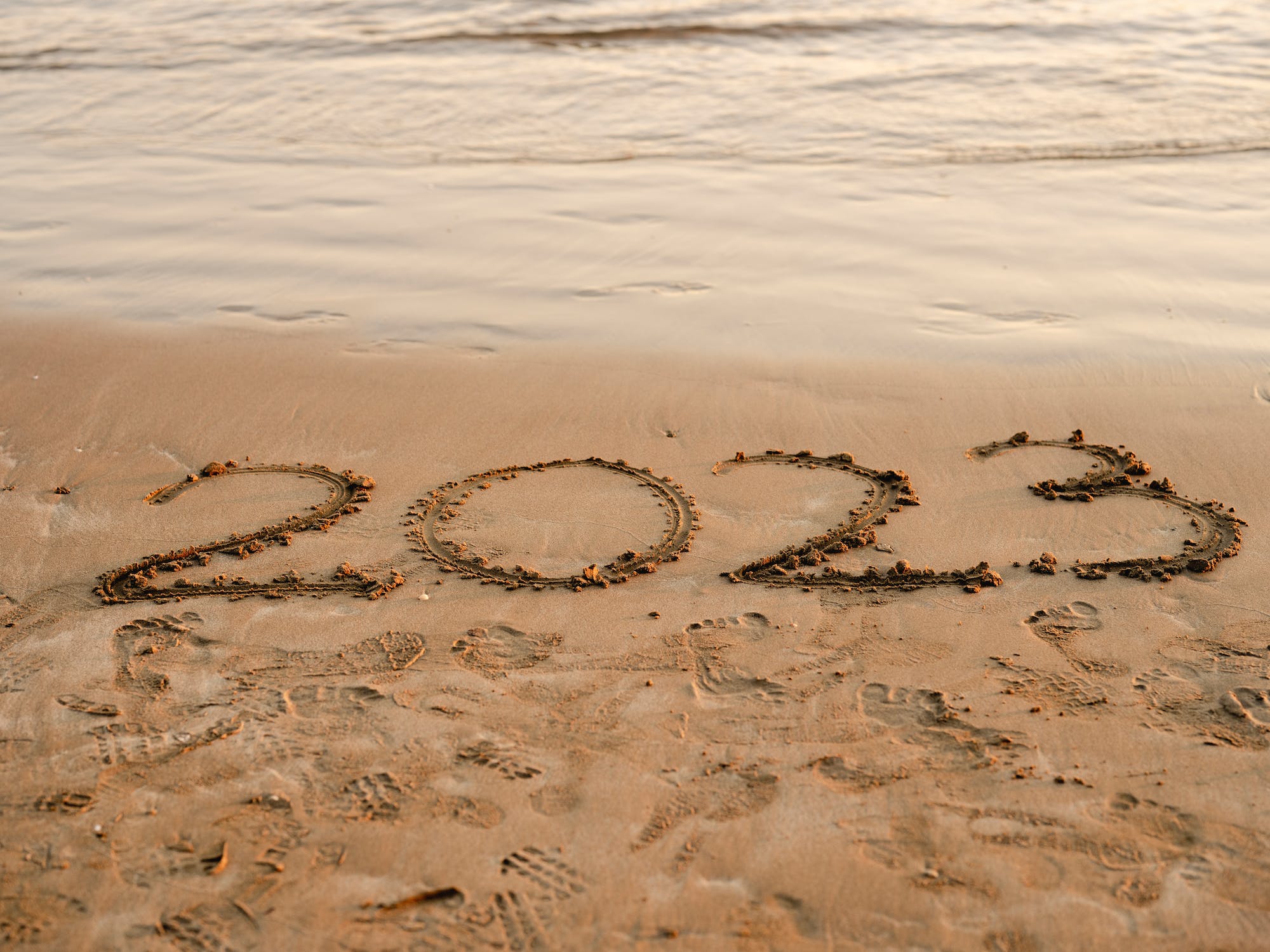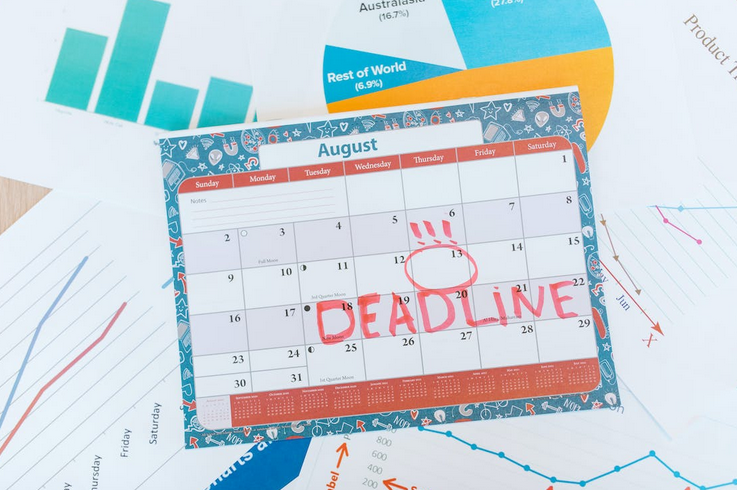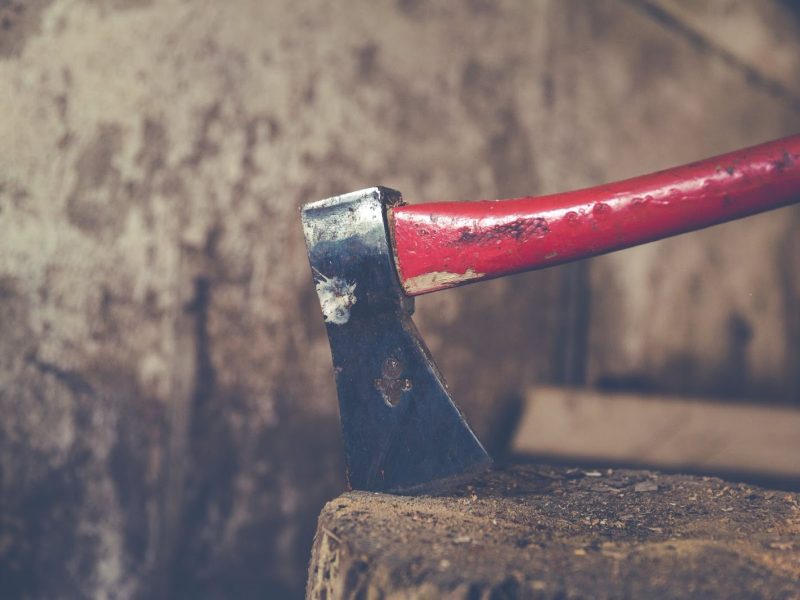“Maybe not everything was so bad in 2023 after all. And maybe that will also give you some courage to look positively towards 2024. With a bit of luck, the crises will become fewer and the good news more and more. And perhaps each and every one of us can do something to make this happen.”
With these words I ended the 2022 annual review. Well,Pustekuchen. That was probably nothing.
There is still a war in Europe, there is a new one in the Middle East. China is preparing to take over Taiwan. Over 110 million people worldwide are fleeing wars, disasters, famine and other suffering. And anti-democratic sentiment and ideas are spreading freely and bluntly in Europe and around the world. It seems as if the age of dictatorships and autocrats is on the rise and humanity is ready to throw 200 years of development for freedom and equality overboard and take another big step backwards.
It may come as a surprise that many people are afraid of artificial intelligence, while natural intelligence is much more frightening.
But fortunately, away from the pessimism-tinged mainstream media and the conspiracy-theory-tinged social media, there are things that make the future seem brighter. Time to take a more positive look at the past year. Here’s some good news* that got lost in the hustle and bustle of the mainstream media in 2023.
January
Did you know, for example, that in January a research group at the University of Koblenz succeeded in producing recyclable and compostable polyester, which, like high-density polyethylene, has the stability and material properties required for industrial production? With the help of enzymes, these plastics can be composted within two months. A big step in the fight against microplastics in the oceans and our food.
In the same month, Canada decided to be completely plastic-free by 2030 and thus drastically reduce the three million tons of plastic waste produced annually. The law, which was published in December, is already having an impact in cities.
In the USA, a law is now in force that allows all medicines to be approved by the US Food and Drug Administration (FDA) without animal testing. In future, agents such as human mini-organs (organoids), multi-organ chips or computer-based procedures can be used instead.
February
The good news continues in February: due to the great success of the Veganuary, Deutsche Bahn decided in February to offer vegan dishes in its on-board restaurants on a permanent basis.
Since February 15, Berliner Bäderbetriebe has been providing free access for low-income Berliners, giving more than 650,000 Berliners access to swimming activities.
Also in February, it was announced that the third patient worldwide had been freed from the HI virus through stem cell therapy. The 53-year-old man, known as the “Düsseldorf patient”, received the stem cell transplant to combat an aggressive form of blood cancer that he had contracted in addition to his HIV infection. Alongside the “Berlin patient” and the “London patient”, he is the third person in the world for whom this therapy has been successfully applied. And his cancer was also cured by the therapy. We are well on the way to getting two terrible diseases under control.
March
And that brings us to March and the most important event in 2023, and probably in my last 44 years. On the morning of March 6, at 7:59 a.m., in wintry snowfall, my little daughter Anni Louise was born. There is nothing more beautiful and positive to report for this year.
Let’s carry on regardless: A UN agreement adopted at the beginning of March now makes it possible to better protect the high seas. The high seas area comprises all marine areas outside the 200-mile zone (approx. two-thirds of the oceans) and was previously considered a legal vacuum in terms of nature conservation. With the new agreement, the UN Convention on International Trade in Endangered Species adopted in December 2022 can now also be applied to the oceans. This means that protected areas can also be established outside the 200-mile zone in which fishing, for example, is reduced or prohibited.
Lolita, a female orca who lived in a small tank in Miami for over 50 years and was regularly forced to perform in shows, is one of those who should be pleased. She was finally released into the wild in March and can hopefully swim freely through the oceans for the rest of her life.
By the way: Since March 8, everyone has been allowed to swim topless in Berlin’s swimming pools. This was announced by the public baths’ press office the day before. This was preceded by a complaint from a woman who was expelled from a pool in December without outerwear. Incidentally, March 8 (International Women’s Day) has been a public holiday in Berlin since 2019 – one of two federal states, along with Mecklenburg-Western Pomerania (since 2023), where women are officially celebrated with a public holiday. That’s good, Berlin and Meck-Pomm. And shame on you, the rest of the federal states!
April
And while we’re on the subject of equality: In April, the crew of the moon mission planned for the end of 2024 was announced, which will be the first crew to orbit the moon in 50 years. In addition to two other crew members, Christiana Hammock Koch will be the first female astronaut and Victor Glover the first person of color on the moon mission.
On April 26, the European Parliament agrees on the regulation on sustainable aviation fuels (ReFuel Aviation). This stipulates that from 2025, aviation fuel must contain at least 2% sustainable fuel. In addition, at least 1.2% synthetic fuel (e-fuels) must be used. According to the regulation, both values must increase in increments of 5 to 70% by 2050.

And then in April, the Neuzelle brewery announced that it had developed an instant beer. If you mix the beer powder with water, you get a (currently alcohol-free) beer with a real head – that’s the promise. The idea behind it: The compressed powder form means the beer can be transported in a more environmentally friendly way. Cheers then!
On the subject of alcohol: April was the third anniversary of my alcohol abstinence experiment, which was only supposed to last a month. Also good news for me.
May
In May, the Brazilian environmental authority halted oil drilling by the semi-state-owned oil company Petrobras at the mouth of the Amazon into the Atlantic Ocean. The main reasons were the lack of environmental protection in the event of disasters and the unclear impact on the habitat of indigenous inhabitants.
In May, a giga wind turbine developed by Siemens generated 395 megawatt hours in one day during test operation. That is as much energy as a family of four needs in 100 years – a world record and a big step towards renewable energies. If we now manage to store this energy efficiently, it will be easy to manage without fossil fuels in the future.
June
In June, the EU presented 20 different initiatives for the treatment of depression and suicide prevention in Europe. The programs are being funded with 1.23 billion euros. According to the EU Commission, more than 84 million people across the EU were already suffering from mental illness before the coronavirus pandemic.
Also in June, the USA rejoined UNESCO, which it had left in 2017 under Donald Trump.
And on June 18, Switzerland voted in a referendum to achieve climate neutrality by 2050, thereby matching the EU’s targets.
July
In July, New Zealand became the first country in the world to ban thin plastic bags for fruit and vegetables. The same law will also ban plastic straws and plastic cutlery. The aim is for 150 million fewer single-use bags to be produced each year and end up in landfills.
On July 4, America’s Independence Day, the states of Utah and Colorado decided to forgo fireworks and instead celebrated with drone-based light shows to prevent the dangers of environmental damage from wildfires.
Researchers at the Medical Research Institute Kitano Hospital in Japan have presented a drug that can regrow teeth. This drug could help people with anodontia – people without teeth – in particular. Initial studies on mice were successful and allowed a third generation to grow after the milk teeth and the real teeth had grown. The plan is to launch this drug on the market in 2023.
August
Since the first of August, the Seychelles have been charging a vacation fee for nature conservation. The amount of €1.70 to €6.90 per day must be paid at the respective accommodation. The revenue is used to better protect the beaches and coral reefs that are popular with tourists.
Italy is testing a free cab service at weekends to get partygoers home safely. Italy’s Ministry of Transport is working with six large discotheques to bring guests home safely who are no longer able to drive themselves due to alcohol consumption. The aim is to counteract the alarmingly high number of traffic fatalities at weekends, as at least 759 people died in accidents at weekends up to August.
Incidentally, Germany is getting colder and colder, as the WWF evaluated its one-year campaign, which started in July 2022. By a total of 1.25 degrees Celsius, which corresponds to an annual CO2 reduction of 100,000 tons.
And to further bind CO2, the Swiss city of Basel is testing a green asphalt in August that binds CO2 by adding biochar. The plan is to store 450 tons more CO2 per year than is generated during production.
September
Less content, more packaging – shrinkflation – a popular trick used by manufacturers to covertly increase their sales. The French supermarket chain Carrefour is now taking action to warn against these hidden price increases. “Shrinkflation, the weight of this product has decreased and the price from our supplier has increased,” is written on stickers attached to products by the supermarket chain. The French government is also planning a law to make these hidden increases transparent. Very laudable, I would like to have something like that here too.
On September 6, NASA announced that it had succeeded in producing oxygen on Mars. A total of 122 grams of oxygen were produced. Well, the whole thing took over 2 years and was just enough oxygen to supply a small dog for 10 hours, but still! Breathe in, breathe out.
And also in September, SAP announced that from 2024, all its fathers and all other partners will receive six weeks paid leave to look after their newborn offspring. While fathers and partners in other companies have to use up their annual leave for this, SAP is going in the right direction to show that work and family are compatible. I think this is a great initiative and should serve as a role model for other large (DAX) companies.
October
The German government founded its own institute in October to better combat widespread diseases such as cancer, dementia and cardiovascular diseases. The new Federal Institute for Prevention and Education in Medicine is to be established by 2025. Although Germany has the highest expenditure on health in the EU, life expectancy is only average in a European comparison.
In Sweden, the first person in the world was fitted with a prosthesis that is firmly connected to bones, muscles and nerves. The 50-year-old test patient had her forearm severed in an accident 20 years ago. Thanks to the firm connection with the muscles and nerves, she can now move all five fingers and perform six different movements with her hand. As the severed nerve tracts are now connected to the prosthesis, the phantom pain is also significantly reduced, meaning that the patient is less dependent on painkillers.
And Japan is finally overturning the sterilization requirement for transsexuals. The corresponding law, which had been in force since 2004, was declared unconstitutional by Japan’s Supreme Court.
November
And good news came from the Amazon region in November. According to a report by the non-profit “Amazon Conservation” program, deforestation in the Amazon region fell by 55.8% in 2023. In Brazil, Colombia, Peru and Bolivia, the number of deforestations decreased.
According to a study published by Chinese researchers in November, consuming 2.5 cups of tea or coffee can help reduce the risk of developing Alzheimer’s disease. This was the result of a meta-study that evaluated various studies involving a total of over 400,000 people.
And also in November, Austria is launching a “Housing First” program, with which Finland has already halved the number of its homeless citizens. 1000 homeless people are to be given their own apartment by September 2024. Social workers will provide support in times of crisis. 6.6 million euros will be invested in the program.
December
And at the end of the year, the European Union decides to ban the destruction of unsold clothing. In future, companies will have to disclose how many unsold items they discard and why. The ban also applies to shoes and clothing accessories.
And also in December, the EU agreed on a strict supply chain law. Large companies can now be held accountable if they profit from child and forced labor outside the EU. Large companies must also be able to present a plan on how their corporate strategy is compatible with the Paris Climate Agreement and can be held accountable before the European Court of Justice in the event of human rights violations in the supply chain.
Canada decides that only zero-emission vehicles may be sold from 2025.
And in Germany, half of the electricity produced in 2023 was climate-neutral for the first time. An important milestone on the way to a completely climate-neutral electricity supply.
In the end
So, that was a somewhat more positive review of the year. I hope you were able to fill up on a little optimism – despite all the crises. And that’s why I’ll end this year, just like last year, with the following words:
“Maybe not everything was so bad in 2023 after all. And maybe that will also give you some courage to look positively towards 2024. With a bit of luck, the crises will become fewer and the good news more and more. And perhaps each and every one of us can do something to make this happen.”
See you again in 2024! Happy New Year!
*A large part of the articles and news comes from the German-language GoodNews, whose team is always happy to receive a donation.


